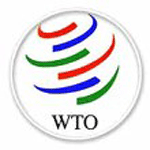A Brazilian in the WTO: What needs to change
Published on Wed, 2013-07-24 17:31
The election of Roberto Azevêdo is a victory for the countries of the South, comments y Isolda Agazzi, analist of Alliance Sud. However, the Brazilian must demonstrate that he will work in favour of developing countries and their small farmers – something Brazil has not always done. It is a first for the WTO: the industrialized countries' candidate, Herminio Blanco from Mexico, lost out to the developing countries' aspirant. Brazil and Mexico follow very different trade policies. Mexico is a member of the club of the wealthy, the Organization for Economic Cooperation and Development (OECD). It is no coincidence that Herminio Blanco was the architect of the North American Free Trade Agreement (NAFTA), which left millions of Mexican small farmers at the mercy of US agribusiness and reduced them to poverty. Mexico has concluded a large number of free trade agreements, including one in 2001, the first between Switzerland and a developing country. Brazil on the other hand is indeed a member of Mercosur, Latin America's common market, but has concluded virtually no free trade agreements as an individual country. Roberto Azevêdo is a seasoned diplomat who is familiar with the inner workings of the WTO and keen to achieve consensus in the multilateral framework. The developing countries make up two thirds of the 159 WTO Member States, and elected the person who better protects their interests vis-à-vis the industrialized countries. Brazil follows a clever trade policy that lies somewhere between opening and protectionism. It reserves the right to protect those of its industries that are not sufficiently competitive on the world market. And it is one of those emerging countries that opposes US demands for duties to be removed from whole sectors of industry, this having been the primary cause of the blockage of the Doha Round. But let us not be naive. Brazil is an up-and-coming power with sometimes different interests from the poorest countries. Brazil, for example, filed a complaint with the WTO Dispute Settlement Body against the USA and its subsidization of cotton production. And although Brazil won the dispute, it refrained, up to now, from introducing permitted countermeasures that would also have benefited small African cotton producers. Instead it contented itself with Washington's support for a Brazilian cotton research institute. However, the persistent threat of Brazilian retaliations may finally push the US to dismantle the most trade-distorting cotton subsidies in the new Farm Bill that is due to be adopted soon. Brazil is a major exporter of agricultural products and pursues an aggressive agricultural policy that runs counter to the interests not only of the industrialized countries. Hence, Brazil sharply criticized Olivier de Schutter, the UN Special Rapporteur on the Right to Food, when he described the protection of small farmers as a tried and tested way of reducing the dependence of developing countries from the world markets and achieving food security. Given the choice between the two candidates, Alliance Sud clearly prefers the one who won the race. From the standpoint of developing countries, however, it is regrettable that the two African candidates – a woman from Kenya and a man from Ghana – were dismissed from the running at an early stage. Finally, the influence of the WTO Director-General should not be overestimated. In the World Trade Organization it is the members that have the say and the Secretariat and its Director have limited power. This is something that developing countries can only welcome. By Isolda Agazzi, Alliance Sud Tags: |


